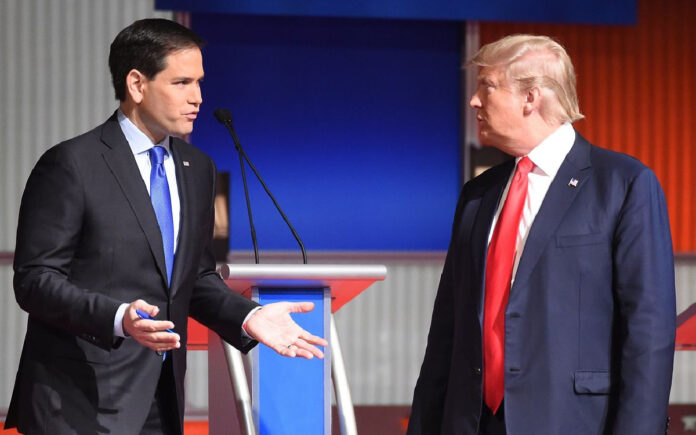Washington: As tensions surge between nuclear-armed neighbors India and Pakistan, U.S. President Donald Trump has expressed dismay over the escalating conflict, while Secretary of State Marco Rubio has reached out to officials from both countries in a bid to defuse the situation.
The diplomatic outreach follows India’s airstrikes on several locations within Pakistan and Pakistan-administered Kashmir. The strikes were launched in response to a deadly attack on April 22 that killed 26 people, mostly tourists, in the Indian-administered region of Kashmir. India has blamed Islamist militants supported by Pakistan for the incident. Pakistan has rejected the accusation and announced it was preparing a military response.
“It’s a shame, we just heard about it,” Trump told reporters at the White House. “I guess people knew something was going to happen based on a little bit of the past. They’ve been fighting for a long time.” He added, “I just hope it ends very quickly.”
In a statement posted on X, Secretary Rubio said he was closely monitoring developments in South Asia and reaffirmed Washington’s commitment to engaging both nations in pursuit of a “peaceful resolution”. The State Department confirmed that Rubio spoke with the national security advisers of both India and Pakistan, urging them to maintain open lines of communication and avoid further escalation.
The Indian embassy in Washington noted that National Security Adviser Ajit Doval had briefed Rubio about the military operations that took place in the early hours of Wednesday in Asia.
While India has become a key strategic partner for the United States, particularly as Washington seeks to counter China’s growing influence in the Indo-Pacific, Pakistan remains an ally, albeit with reduced significance following the U.S. troop withdrawal from Afghanistan in 2021.
In recent days, U.S. officials have publicly encouraged both India and Pakistan to exercise restraint and seek a diplomatic resolution to the crisis. While the Biden administration stopped short of attributing direct blame to Islamabad for the April 22 attack, officials have reiterated the importance of stability in the region.
Also Read | Decades of Discord: Major Flashpoints in India-Pakistan Relations
On April 25, President Trump emphasized the importance of bilateral resolution, saying: “They’ll get it figured out one way or the other.”
Behind the scenes, U.S. diplomatic efforts have continued, with the State Department confirming that discussions have taken place at multiple levels with both governments. Secretary Rubio had also held phone conversations with senior officials in India and Pakistan last week.
Also Read | India Strikes Terror Targets in Pakistan; Islamabad Claims Five Jets Downed
The latest flare-up adds to a long and troubled history of hostility between India and Pakistan, particularly over the disputed Himalayan region of Kashmir. Both countries claim the territory in full but govern only parts of it. Their rivalry has led to several wars and frequent skirmishes along the Line of Control.
As the situation remains volatile, Washington’s dual-track approach—urging calm while maintaining strategic ties with both nations—highlights the delicate balance the U.S. must strike in South Asia.



